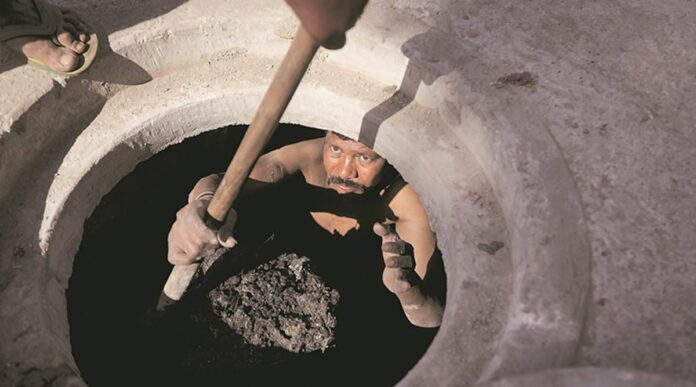The Gujarat High Court on Monday said that local officials such as the chief of the Gram Panchayat or the Commissioner of the concerned civic body would be held responsible if found that manual scavenging was used to clear manholes.
A division bench consisting of Justice AJ Desai and Biren Vaishnev stated in its order that:
“If any of the worker whose services have been availed by any of the Municipal Corporation, any Municipality or any Gram Panchayat for cleaning sewerage in the concerned area, the Municipal Commissioner of concerned Corporation, Chief Officer of concerned Municipality and Sarpanch of concerned Gram Panchayat shall be held liable for the action since by the Government Resolution dated June 21, 2014, such activities have been banned.”
Represented by Advocate Subramaniam Iyer, the Public Interest Litigation (PIL) petition submitted before the bench demanded proper implementation of Prohibition of Employment as Manual Scavengers and their Rehabilitation Act, 2013, and sought criminal action against nodal officers who were responsible for manual scavenging deaths.
The State government, represented by Government Pleader Manisha Lavkumar Shah and Advocate Utkarsh Sharma, informed the bench that the state has disbursed compensation to the legal heirs of 137 out of 152 deceased who died while they were engaged in manual scavenging. It is in the process of collecting more information on the same. They further stated that manual scavenging is used by private contractors, not local authorities, and that private contractors do not contact the authorities while doing so.
The bench ordered the state to pay all compensation before the next hearing on June 19 and dismissed the arguments presented by the State representatives as mere excuses.
Manual scavenging is a caste-based occupation with deep links to hereditary forced labour customs and has persisted despite technological alternatives. The extremely dangerous and demeaning task is overwhelmingly performed by dalits and sometimes by adivasis and other minorities, who become exposed to infectious diseases, poisonous gases, injury and social discrimination.
Between March 22 to April 26, 2023, there have been eight reported deaths from manual scavenging in Gujarat alone. In all incidents, those who died were hired by private contractors to whom civic bodies and government agencies outsource the maintenance of underground sewer lines. None were given protective hear while entering the sewer lines and died of asphyxiation or inhalation of poisonous gas.
In a recent Assembly, it was claimed that eleven people have died of manual scavenging in the past years. However, activists claim that the numbers are much higher.
Despite the ban on the practice, manual scavenging deaths have been recorded across the country in large numbers. In 2022, Minister of State for Social Justice Ramdas Athawale shared data in parliament of 352 deaths over the previous five years. The actual number is likely to be much higher, with Criminal Justice Society of India claiming that one manual scavenger dies every five days.





























